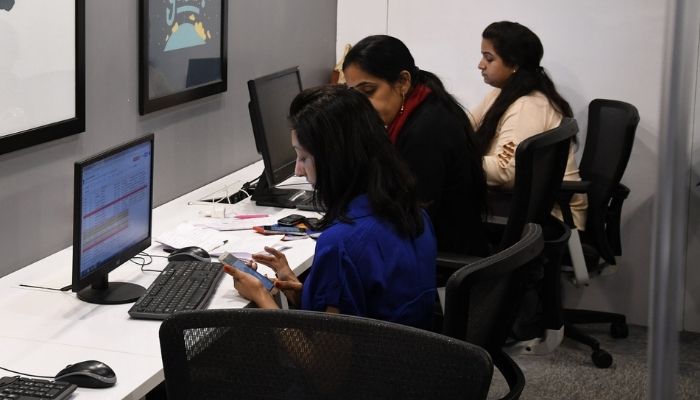Recent POSH Judgements: Can Gender Discrimination Be Seen In Line With Sexual Harassment?

Written by: Suruchi Kumar
Editor’s Note: This edition of the quarterly legal round-up of cases pertaining to D&I and PoSH issues is for the period of October to December 2020. In this piece we focus on Malabika Bhattacharjee v. Internal Complaints Committee, Vivekananda College and Ors. decided on 27.11.2020, and Prasad Pannian v. The Central University of Kerala and Ors. decided on 02.12.2020
Does The PoSH Act Allow For Sexual Harassment Complaints Against The Same Gender?
Malabika Bhattacharjee v. Internal Complaints Committee, Vivekananda College and Ors.
Bench: High Court of Calcutta
Decision dated: November 27, 2020
Facts: A complaint of sexual harassment was filed against the Petitioner, a female employee of the college, by a private respondent being a female on 15.09.2020.
Contentions: Petitioner filed a writ petition before the HC contending that the Internal Committee (“IC”) acted without jurisdiction in entertaining a complaint on alleged sexual harassment against the petitioner on the complaint of the private respondent, despite the fact that both of them are of the same gender.
Second contention being that the alleged acts were not under the purview of ‘sexual harassment’ under the PoSH Act. Thirdly, the private respondent was an outsider, and such complaint should have been taken up under the Indian Penal Code under which complaints are maintainable only against male perpetrators.
It was argued by the IC that the definition of ‘respondent’ under the UGC regulations are broad enough to encompass respondents of all genders, implicitly meaning that the gender of the complainant and the respondents can very well be the same in order to attract the rigours of the Regulations, which govern the present parties as well. Further, Section 2(m) of the PoSH Act also does not indicate a specific gender and therefore the complaint was sustainable.
Judgement: The High Court held that there is nothing in Section 9 of the 2013 Act [which has been referred to in Section 2(m)] to preclude a same-gender complaint under the PoSH Act.
Further, the court held that “it might seem a bit odd at the first that people of the same gender complain of sexual harassment against each other, it is not improbable, particularly in the context of the dynamic mode which the Indian society is adopting currently, even debating the issue as to whether same-gender marriages may be legalized.”
Sexual harassment, as contemplated in the 2013 Act, thus, has to pertain to the dignity of a person, which relates to her/his gender and sexuality; which does not mean that any person of the same gender cannot hurt the modesty or dignity as envisaged by the 2013 Act.

A person of any gender may feel threatened and sexually harassed when her/his modesty or dignity as a member of the said gender is offended by any of the acts, as contemplated in Section 2(n), irrespective of the sexuality and gender of the perpetrator of the act.
On the above grounds, the writ petition was dismissed and the IC was directed to continue the investigation proceedings.
Gender Discrimination: Also Admissible Under PoSH?
Prasad Pannian v. The Central University of Kerala and Ors.
Bench: High Court of Kerala at Ernakulum
Decision dated: December 02, 2020.
Facts: The Petitioner, Prasad Pannian, contended that the allegations of gender discrimination in the complaint given by the 8th respondent did not disclose any form of sexual harassment coming within the purview of the 2013 Act. Therefore, being squarely covered under an earlier Single Judge bench decision of Anil Rajagopal v. State of Kerala and Others reported in 2017 (5) KHC 217,
The instant petition was placed before Single Judge at Kerala HC who held that definition of ‘sexual harassment’ under Section 2(n) is an inclusive definition and not exhaustive one. Further, Section 3 also added more circumstances which can be termed as sexual harassment. Thereby holding against the Petitioner but referring the matter for consideration before the Division Bench
Contentions: It was contended by the Petitioner that harassment can be meted out against an individual in different forms and only in instances where the harassment has an element of sexual advance in some form, it becomes a sexual harassment. A mere difference in sex between two individuals cannot give rise to a sexual harassment even though there might be harassment.
On behalf of the University, reliance was placed on the recent judgement of the Hon’ble Supreme Court of India in Nisha Priya Bhatia v. Union of India and Others reported in 2020 (3) SCT 455 (SC) wherein the Apex Court had considered the question relating to sexual harassment in workplace and held that
“The scheme of the 2013 Act, Vishaka Guidelines and Convention on Elimination of All Forms of Discrimination Against Women (CEDAW) predicates that a non-hostile working environment is the basic limb of a dignified employment. The approach of law as regards the cases of sexual harassment at workplace is not confined to cases of actual commission of acts of harassment, but also covers situations wherein the woman employee is subjected to prejudice, hostility, discriminatory attitude and humiliation in day to day functioning at the workplace.”
On behalf of the original complainant, reliance was placed on landmark judgement of Delhi High Court in Dr. Punita K. Sodhi v. Union of India and Others [WP(C) No. 367/2009 & CMs 828, 11426/2009] wherein it was held that “incidents of sexual harassment ought not to be viewed in isolation. The other parts of the complaint are as relevant in determining whether there was any persistent conduct of the perpetrator which could be termed as sex-based discrimination or harassment over a prolonged period.”

Judgement: The Court, while understanding the illustrative nature of definition of ‘sexual harassment’ under the PoSH Act, held that to bring an incident under the purview of the law, the alleged act should have something to do with a sexual advance either directly or by implication.
Going by the statute, only a few unwelcome acts had been delineated under sub-clauses (i) to (v). It is possible that there might be other unwelcome acts or behaviour which would amount to a sexual advance or demand which the woman feels to be annoyed on account of the fact that she is a woman.
The Court further held that the PoSH Act does not contemplate a situation of discrimination on the basis of sex whereas it specifically deals with sexual harassment in the workplace. In the Courts opinion, all cases placed before it viz. Nisha Priya Bhatia (supra) and Punita K. Sodhi (supra) were cases prior to the 2013 Act and therefore cannot be relied upon.
Consequences of this judgement: In the opinion of Ungender Team, this judgement is per incuriam (bad law) on various grounds, including the fact that protection from gender discrimination is a fundamental right which is enshrined in the Constitution of India.
Further, the PoSH Act finds it genus from Convention of Elimination of All Forms of Discrimination Against Women (CEDAW) which has been ratified by India and prohibits gender discrimination and sexual harassment. Ungender is keeping a keen eye on this matter to see whether the judgement will be set aside by Supreme Court of India, if at all challenged.
About the author: Suruchi Kumar is the Head of Legal Services at Ungender, Advocate at the Supreme Court and a Labour Laws expert.
Images have been used for representation only. Image credits: ILO Asia Pacific/Flickr
Ungender Insights is the product of our learning from advisory work at Ungender. Our team specializes in advising workplaces on workplace diversity and inclusion. Write to us at contact@ungender.in to understand how we can partner with your organization to build a more inclusive workplace.
Read our insights about diversity, legal updates and industry knowledge on workplace inclusion at Ungender Insights. Visit our Blog.
Sign up to stay up-to-date with our free e-mail newsletter.
The above insights are a product of our learning from our advisory work at Ungender. Our Team specialises in advising workplaces on gender centric laws.
or email us at contact@ungender.in




